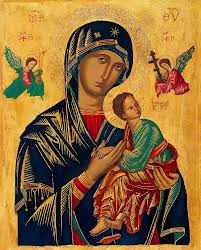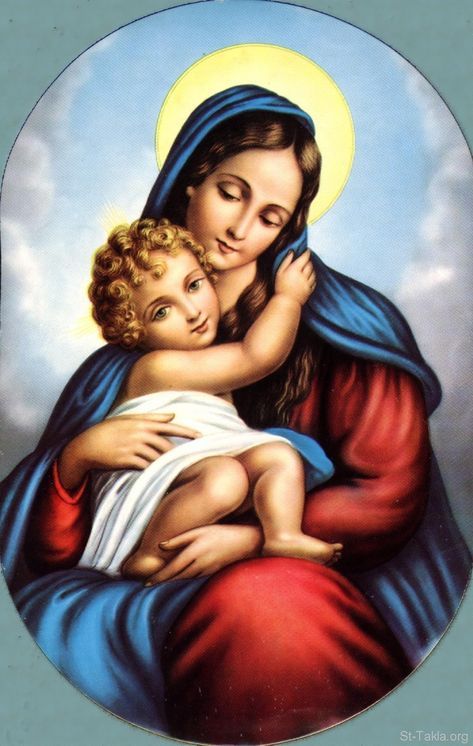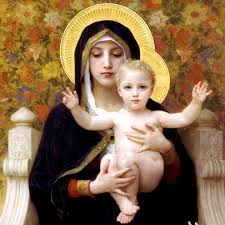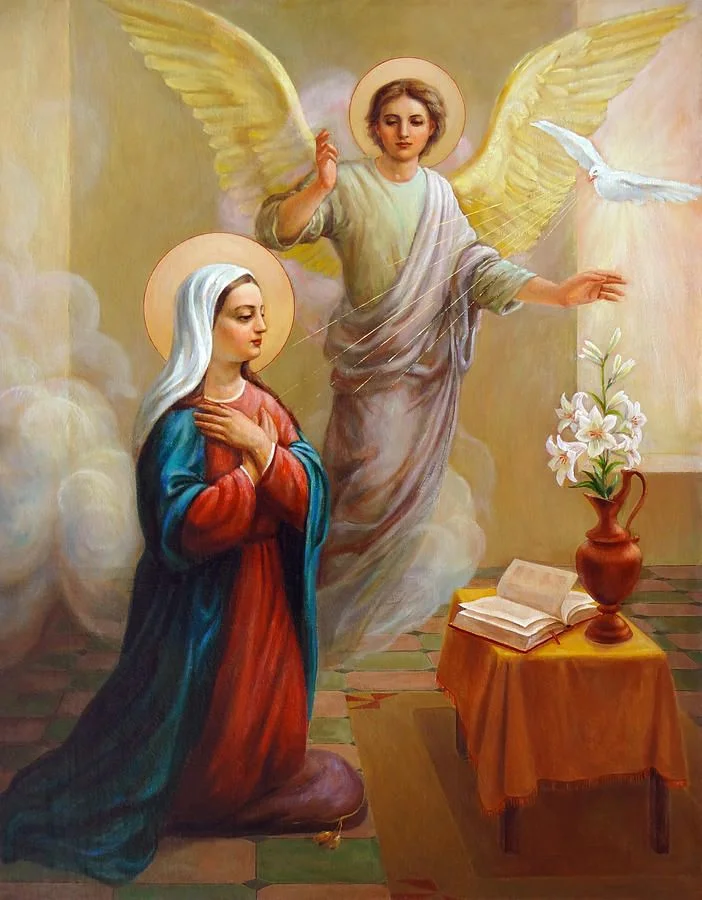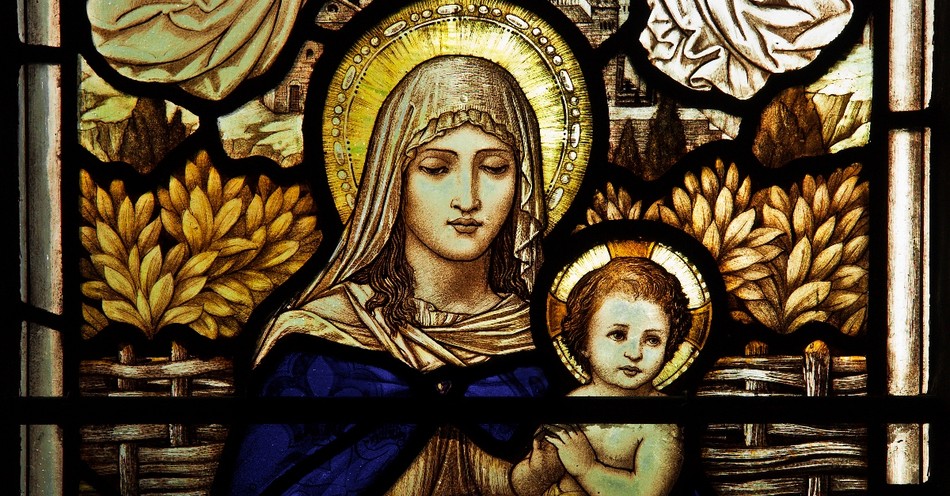The Transformative Power of Marian Consecration on Marriage and Family
Introduction: Defining Key Concepts
This discourse explores the theological and practical implications of consecrating marriages and families to the Blessed Virgin Mary. We will define consecration as a formal act of dedicating oneself, one's marital union, and one's family to Mary's maternal protection and guidance, recognizing her role as intercessor and spiritual mother within the Catholic tradition. We will examine this practice through the lens of various theological frameworks, including the concept of Marian intercession, the model of the Holy Family, and the transformative power of grace as understood within Catholic theology. The exploration will draw upon biblical examples, the teachings of the Catechism of the Catholic Church, and the lived experiences of Catholic saints. The aim is to provide a comprehensive understanding of the potential benefits and spiritual enrichment derived from Marian consecration for modern families.
Theological Underpinnings of Marian Consecration
The act of consecration to Mary stems from the fundamental Catholic belief in her unique role within the economy of salvation. The Catechism of the Catholic Church emphasizes Mary's perfect embodiment of the Church and her inseparable connection to the saving work of her Son (CCC 971). This foundational understanding supports the belief in her powerful intercession. This intercession, as exemplified in the wedding at Cana (John 2:1-11), demonstrates Mary's capacity to intervene in human affairs, bringing divine grace to bear on situations of need and distress. The concept of intercession here refers to Mary’s act of pleading on behalf of humanity before God, empowered by her divine motherhood and close relationship with Jesus Christ. This is not a belief in Mary possessing independent divine power, but a recognition of her unique position of influence.
The Holy Family as a Paradigm of Consecrated Life
The Holy Family, consisting of Mary, Joseph, and Jesus, serves as the archetypal model of a life consecrated to God. Their unwavering faith, mutual love, and dedication to the divine will provide a powerful example for contemporary families. Applying family systems theory, we can see the Holy Family as a functional system characterized by strong relational bonds, clear boundaries, and effective communication, all fostered by their deep faith. This model highlights the importance of a shared spiritual foundation in building strong, resilient family units. Through consecration to Mary, families seek to emulate this model, cultivating an atmosphere of love, faith, and obedience within their homes.
Marian Consecration and the Enhancement of Marital and Family Relationships
The practice of consecrating one's marriage and family to Mary offers numerous potential benefits, strengthening the bonds of unity and love. Within the context of marital and family therapy, consecration can be viewed as a commitment to a shared spiritual journey, providing a common framework for navigating challenges and fostering resilience. This shared faith can enhance communication, empathy, and conflict-resolution skills. By drawing upon Mary's example of humility, obedience, and unwavering faith, couples can learn to approach their marital relationship with greater selflessness and mutual respect. Furthermore, the shared commitment to Mary's intercession fosters a deeper sense of belonging and spiritual support within the family.
Spiritual Growth and the Reception of Grace
Consecration to Mary is not merely a ritualistic act but a pathway to spiritual growth and the reception of divine grace. According to Catholic theology, Mary's intercession acts as a conduit for God's grace, facilitating blessings and spiritual progress. The concept of grace, in this context, refers to God’s freely given gift of divine assistance enabling spiritual growth. This grace manifests in various ways, including the strength to overcome challenges, deeper appreciation for one another, and increased capacity for selfless love. Through prayer and devotion to Mary, families can cultivate an environment conducive to personal transformation and spiritual enrichment.
The Legacy of the Saints and the Power of Example
Throughout history, countless saints have exemplified the transformative power of devotion to Mary. Saints like Maximilian Kolbe, who consecrated his life to the Immaculate Heart of Mary, serve as inspiring examples of unwavering faith and selfless service. These examples demonstrate the tangible impact of Marian consecration on individual lives and the broader world. The saints’ lives highlight the potential for personal transformation and the ability to channel one’s devotion into actions of compassion and sacrifice. Their experiences serve as encouragement and inspiration to those considering embarking on a similar path of consecration.
Conclusion and Recommendations
The practice of consecrating marriages and families to Mary, rooted in rich theological tradition and exemplified by the lives of saints, offers a powerful pathway to spiritual growth, marital enrichment, and familial unity. The evidence suggests that this practice facilitates enhanced communication, improved conflict resolution, increased resilience, and a deeper sense of spiritual connection. Further research could explore the empirical effects of Marian consecration on marital satisfaction, family well-being, and the spiritual lives of individuals and families. Qualitative studies, involving in-depth interviews with families practicing Marian consecration, could illuminate the lived experiences and benefits associated with this devotional practice. This research could inform the development of pastoral resources and support programs that encourage and guide families in their journey of consecration. The positive impact of Marian consecration is multifaceted, extending beyond individual spiritual benefits to enhance family dynamics and strengthen the community. The long-term influence on society could be substantial, fostering stronger families, more compassionate communities, and ultimately, a more devout and faith-filled world. It is crucial that this practice be understood within its proper theological context, emphasizing Mary's role as intercessor rather than attributing to her any divine power.
Reader Pool:
Considering the theoretical and practical aspects discussed, how might a comprehensive evaluation of Marian consecration’s impact on modern families be designed to ensure both theological accuracy and methodological rigor?


